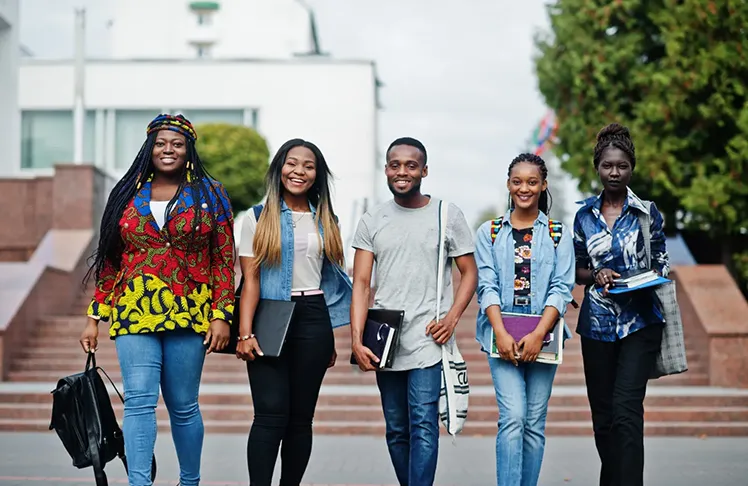
This article is one of a series of articles produced by Word in Black through support provided by the Chan Zuckerberg Initiative. Word In Black is a collaborative of 10 Black-owned media outlets across the country.
In a historic move for education, New York City will see the launch of its first-ever HBCU Early College Prep High School in September 2025. The school, set to open in Southeast Queens, represents an innovative partnership between the NYC Department of Education and Delaware State University (DSU).
This program will allow students to graduate with both a high school diploma and an associate’s degree—at no cost.
This initiative, led by Dr. Asya Johnson, blends rigorous college preparatory education with the legacy and culture of Historically Black Colleges and Universities (HBCUs). The idea of creating a high school in New York with HBCU roots came to Johnson during an annual visit to DSU, her alma mater, with some New York high school students interested in touring the school.
“I knew some folks down there,” Johnson, chancellor’s master principal of NYC Public Schools, tells Word In Black. “And I (thought), well, I’m going to write this proposal (for the school), and instead of it just being, like, an early-college high school, it would also offer courses culturally relevant and interesting to its students.
“I knew that New York City was really big on innovation,” Johnson says. “So I thought, let’s have an HBCU early college, where they not only get an associate’s degree but also get the HBCU experience.”
The school’s structure allows students to earn dual college and high school credits starting in ninth grade. By the time they graduate, students will have enough credits for both a high school diploma and an associate’s degree. The program anticipates about 100 students in its first year and plans to expand to between 460 and 500 thereafter.
The program will offer a hybrid model: In the first few years, students will take high school courses on the Queens campus, while DSU faculty will train the high school faculty on how to teach classes from the DSU curriculum. Students will have more flexibility in their junior and senior years, with some college courses available remotely.
The Significance of HBCU Early College Prep in New York
The opening of this high school in New York City is particularly significant: the city has a vibrant Black diaspora, yet the state lacks an HBCU. Johnson says the school is the first of its kind in a large public K-12 system that will address and help close the Black-white education gap.
“I had a great experience at Delaware State University, but I often thought about what I did not receive as a student in high school,” she says.
A former principal in the South Bronx and a member of New York City’s Diversity Advisory Group, Johnson says the HBCU Prep curriculum will not only include culturally responsive coursework but also helps students meet state academic standards.
The HBCU Early College Prep High School “aims to provide students with an academic experience grounded in Black history and culture while also preparing them for the rigors of higher education.”
To qualify for the degree, students must complete 44 high school credits and pass 5 Regents exams to meet the New York State high school graduation requirements. At the same time, they will complete dual-enrollment courses from DSU, which faculty members will oversee to ensure students meet the academic standards for an Associate’s Degree.
Closing the Black Student Achievement Gap
The HBCU Early College Prep High School launches at a pivotal time. Nationwide, Black students face significant disparities in education, from lower graduation rates to underrepresentation in advanced coursework. This program has the potential to alter those disparities by offering accelerated learning opportunities and support systems that are often missing in traditional public school settings.
Studies show that students who take community-college courses while in high school are more likely to finish high school, positioning them for greater success in higher education. Johnson says the high school will give them a head start.
“If we can get students to finish a bachelor’s degree by 20, we’re not only changing their lives but also helping their families by reducing financial burdens,” Johnson says.
National Relevance and Potential Impact on Education
Although the HBCU prep high school represents a milestone for New York City, its significance also goes beyond city limits. As one of the first programs of its kind in a major city — and with a growing interest in culturally responsive education — it could serve as a model for other cities nationwide. Johnson says that she’s already received inquiries from states like California, Texas, and Ohio.
“In my ideal world, I’d love to replicate this,” she said. “We need to see more schools like this that offer students a culturally relevant, accelerated path to higher education.”
















